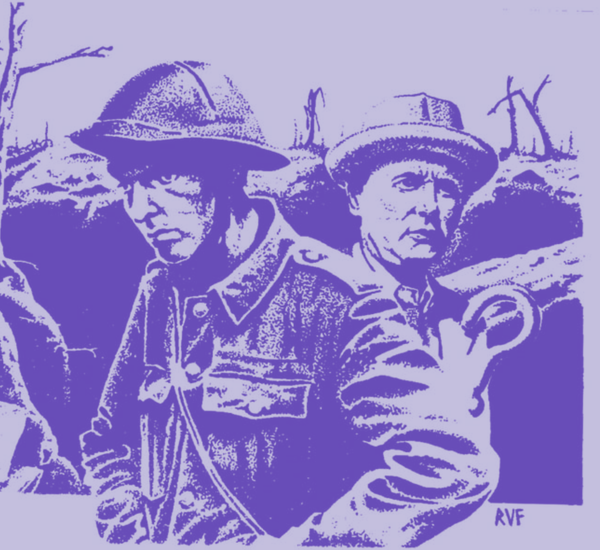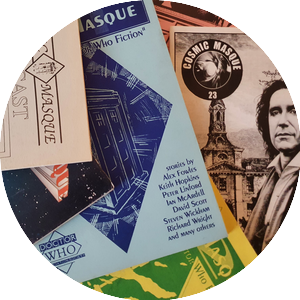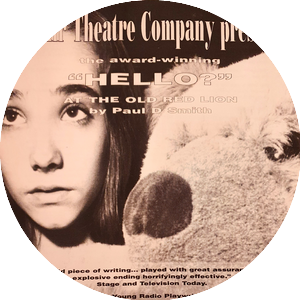Motivation
In November 1990, Doctor Who Magazine started publishing their Brief Encounters series of short stories. I had only just started sending stories to the Doctor Who Appreciation Society, but I already knew I wanted to write one. I started submitting every Doctor Who short story I wrote to Marvel UK, usually in batches of two of three to save on the postage. I got my first professional rejection letter signed by the then editor John Freeman on letter-headed paper with Spider-man crawling across it. It was just a form letter, one that probably every Doctor Who fan living in England at that time had, but for years it was my most treasured possession.
But it wasn’t just that the stories were Doctor Who, it was that they were short stories. Each Brief Encounter was only 800 words or so, and I had been writing short stories for years. I knew Doctor Who well enough to be able to be able to come up with stories that felt like they fit that universe. But the main reason I wanted to write a Brief Encounter was because Doctor Who Magazine were the only publisher I knew who was printing stories.
Inspiration
1993 was the first year that my parents decided to let me do what I really wanted to on our annual holiday: we went somewhere hot and foreign, and I stayed in the apartment and read book after book. One of them was a collection of HG Wells short stories, featuring the story The Land Ironclads. A prophetic story of tanks on the front lines of an unnamed war, Front Line came to me in one solid piece just by wondering what the Doctor would do in such a story.
The Gallery was also inspired by HG Wells short stories, but more in tone than specifics: sepia-tinged and melancholic, worried about the horrors of war and the future of mankind in general. Like many of my stories, it was also inspired by a song: Don McLean’s Vincent was in my head that Summer, and its sad refrain of “Frameless heads on nameless walls” suggested the gallery that the Doctor walks through in the story.
Getting the Story
The stories were written long-hand in a spiral-bound notebook over two days of that holiday. It felt like the longest thing I had ever written because for the first time I was writing to a word limit: I knew how long a Brief Encounter had to be, because there had been a competition in 1991 to write one. Every few words I would stop and count how many words I had written until I reached the magic number and the end of my story.
The Gallery came in one go, but was shorter and simpler than the final version: the Doctor arrives at the gallery and walks straight to the painting he sees at the close of the story. It was short, but it said everything I wanted it to. When I came back home after ten days abroad, I borrowed my father’s computer and typed up the longhand story. There weren’t any major changes made, but the odd word would have been changed here and there. Then, without letting anyone else read the story or even hinting what it was, I bought a stamp off my mother and posted it to Marvel UK headquarters with the other story I had ready.
Editorial
Some time later, I got a reply from the then editor of Doctor Who Magazine, Gary Russell. I knew it was most likely a rejection, but you can’t help but hope. The letter started by telling me that the Brief Encounters were going to end soon, and the space was eventually given over to preludes of the Virgin New Adventures.
But, it said. But.
Gary had liked Front Line, and whilst there were only going to be a limited number of new Brief Encounters published, Front Line was good enough to be one of the last. The Gallery, he had liked but thought it a little short and a little simple: he described it as having no middle, and for that reason said he couldn’t use it.
Reading the story again, I knew he was right.
Worse, I knew how I could fix it. The week before the letter arrived, I had studied a short story in school that used allegory to underline its theme and mood. As soon as I read Gary’s letter, the idea of having the Doctor discover and destroy the Atlas statue popped into my head, and I knew it would make the story better. But Gary Russell had said he couldn’t use it, and I knew enough even then to understand that you didn’t argue with a rejection letter.
But I knew I had a longer, better version of the story.
I decided I would interpret the rejection letter as a request for a rewrite, and duly sent a copy of the new version back to Gary with a covering letter apologising for resubmitting but explaining that now the story had a middle I thought Gary might want to read it again. I expected to get a polite but firm no, especially considering that the number of slots for new Brief Encounters was reducing every month. What I got instead was a letter from Gary saying that this new version was much better, did have a middle, and would be published some time in the new year.
What Happened Next?
The day that my subscription copy of Doctor Who Magazine Issue 208 arrived, I was rehearsing a pantomime at the Phoenix Arts Theatre in Leicester. I read it through to myself four times, sitting in the auditorium watching the professional actors blocking out some bit of business. My friend found out what I was reading and showed it to every member of the cast and crew, and just for a moment every one of them looked at me differently than they had before.
But what I wasn’t allowed to tell them was that I already knew I was one of the winners of the 1994 Woolwich Young Radio Playwrights’ Competition, and that soon my play would be performed in the Cambridge Theatre. When Doctor Who Magazine Issue 213 came out, I was getting ready to attend a week of rehearsals in London I took the magazine with me, and carried it around in my bag everywhere I went. But I didn’t show it to anybody: this was a different world, and Doctor Who was five-years dead.
It should have been a confidence boost. Tim Crook and Gary Russell didn’t know each other and they didn’t know me, but they both worked with professional writers every day and thought that my work was just as good. But it wasn’t. Having two professional credits to my name didn’t suddenly make me feel like a writer, and when my second play didn’t do very well I was convinced that I had never actually had any talent in the first place.
Confidence did eventually grow, but only after a lot more words had been written.


